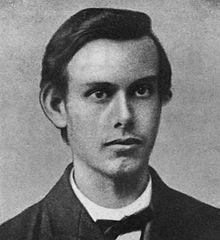Friedrich Schiller Quotes - Page 11

Friedrich Schiller, Elizabeth Mary Wilkinson, Leonard Ashley Willoughby (1967). “Schiller: Aesthetic education”, Oxford University Press, USA
Friedrich Schiller (2013). “Delphi Complete Works of Friedrich Schiller (Illustrated)”, p.304, Delphi Classics
Friedrich Schiller (2013). “Delphi Complete Works of Friedrich Schiller (Illustrated)”, p.3621, Delphi Classics
Friedrich Schiller (1861). “Complete works. Ed. with careful rev. and new tr., by C.J. Hempel”, p.435
"Maria Stuart". Play by Friedrich Schiller (Act I, Scene 7, line 131), June 14, 1800.
Friedrich Schiller (1852). “Poems and Ballads ... translated by Sir E. B. Lytton ... With a brief sketch of Schiller's life”, p.81
You have to go the rounds from individual to individual in order to gather the totality of the race.
Friedrich Schiller (2012). “On the Aesthetic Education of Man”, p.38, Courier Corporation
Friedrich Schiller, Helga Zepp-LaRouche (2015). “Friedrich Schiller Poet of Freedom Volume III”, p.270, Executive Intelligence Review
Friedrich Schiller (1861). “Complete works. Ed. with careful rev. and new tr., by C.J. Hempel”, p.435
1801 DieJungfrau von Orle ans, act1, sc.5.
Friedrich Schiller (1981). “On the naive and sentimental in literature”






